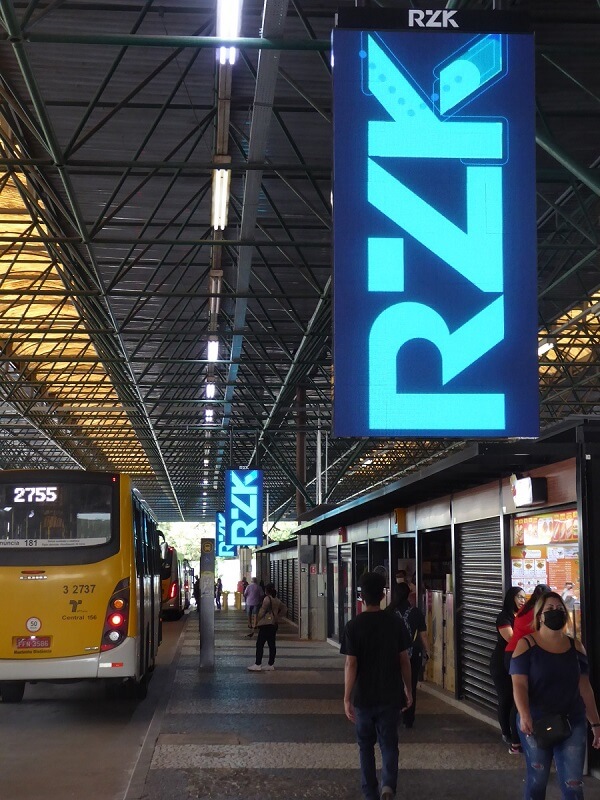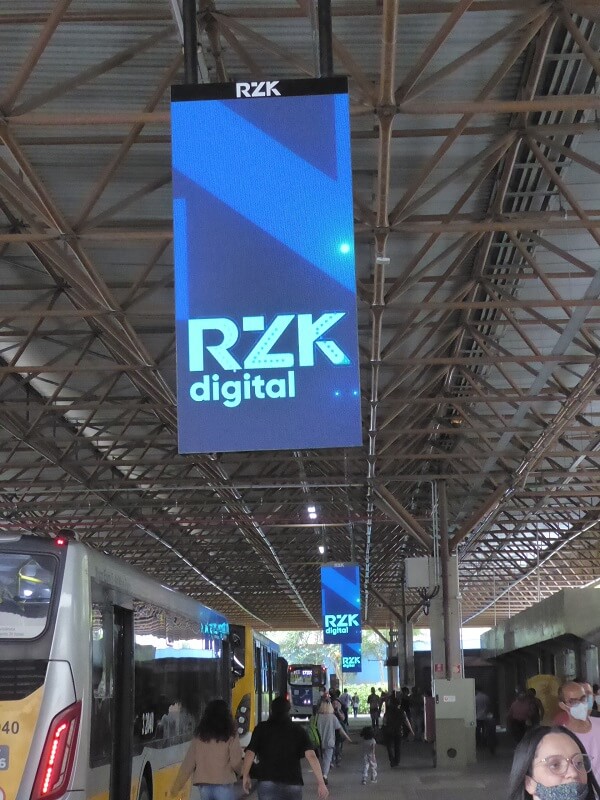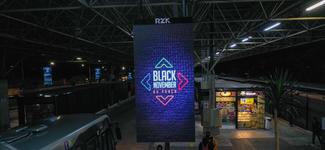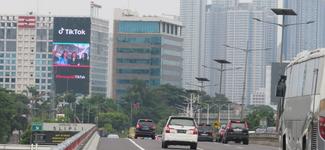Back in 2007, officials in São Paulo, Brazil, instituted the Clean City Law, effectively banning billboards and outdoor advertising across the city. Today, the ban remains in effect, forcing digital and media agencies to come up with creative ways to reach audiences in offline settings.
Looking to create new opportunities in the DOOH space, RZK Digital has come up with an innovative solution for bringing digital out-of-home media to the masses. In the absence of large billboards and bulletins, RZK Digital operates a network of place-based DOOH screens displayed in the city’s bus terminals, which are seen by thousands of commuters daily.
About RZK Digital
RZK Digital was founded on the belief that digital is the future of the out-of-home industry. Launched in October 2021, RZK is an entirely digital OOH business, and makes use of the latest tools for audience measurement for ad targeting. By integrating its data into its advertising network, it is able to deliver targeted campaigns based on customized audiences all across its inventory.
The business’ small-but-growing team is made up of about 15 data science-focused employees who work on the company’s robust network of 200 LED vertical screens, located in the bus stations of different transit routes across São Paulo. Generally, the large-format vertical screens measure about two metres high and are installed in hard-to-miss locations or suspended from the ceilings of the bus shelters. Advertisers benefit from enviable coverage—the bright displays are seen by around 600,000 people a day and generate approximately 2.3 million impressions weekly.
As a result of its innovative approach to DOOH, RZK has already attracted many of the major
advertisers in the Brazilian market. These come from a wide range of products and services,
including global brands like McDonald’s, Burger King, and Santander.

A focus on data
This focus on digital data extends not just to RZK Digital’s network but is part of the brand’s ethos. This is true right down to the team level, with most of the brand’s employees coming from a data science or technical background. In fact, RZK Digital doesn’t necessarily consider other OOH companies as its direct competitors—rather, it finds itself operating in the same ecosystem as online advertisers and sees them as its peers.
Part of what informed this trailblazing company’s decision to operate exclusively as a DOOH provider, rather than adding static billboards as well, is that it wanted to bring something new to the market in Brazil. And despite being newcomers to the playing field, RZK Digital is proud of its early successes. So far, the overall response to the digital signage offering has been very positive.
As might be expected when building up a new offering, though, there remains education to be done to help buyers explore the medium. The team is confident that once there’s a better understanding around the possibilities of what sort of media buys are available with DOOH—for example, that ads can be purchased based on demographics or via programmatic digital-out-of-home—there’s going to be a surge in demand, and this company has everything in place to meet it.
To provide advertisers with comprehensive metrics, RZK Digital works with Everywhere Analytics, a start-up that uses sensors to measure how long people are staying in terminals, along with Quividi to compare numbers from one station to the next. The team also relies on data supplied by the public transportation board for access to even more insights, including rider demographics, economic profiles, and the times of day different groups are most likely to be boarding the buses. RZK Digital’s team of data scientists looks over the first-party data collected and uses it to build contextual, relevant campaigns with its buyers. Beyond that, the company even operates its own proprietary app to measure the results and impact of its campaigns.

Broadsign and RZK Digital
It’s fair to say that RZK Digital’s vision is ambitious. To help them bring these visionary efforts to life, the company wanted to enlist the support of a software platform with a global reputation, and one that could provide scalable solutions and detailed campaign analytics.
Early on, RZK Digital adopted the Broadsign platform, recognizing the software’s power to create more efficient operations and support campaign management from end to end. Currently, RZK operates Broadsign Control to facilitate content distribution and Broadsign Direct to help manage sales, with plans to bring on the Broadsign Reach SSP to facilitate programmatic transacting as well as Broadsign Publish to help its partners develop highly interactive ads.
Up next for RZK Digital is continued work to improve on its offerings, integrating more solutions and applications with Broadsign and RZK’s network. Eventually, RZK Digital hopes to expand its offering to shopping malls, but for the foreseeable future, it has its sights set on expanding its screens into even more bus terminals, planning to double its existing presence of 13 stations by 2022.
To RZK Digital, being a digital company doesn’t just refer to the number of screens in its inventory—it’s a mindset. By harnessing the power of digital screens and data to fuel new, exciting opportunities, this forward-thinking company is setting its sights on big possibilities in Brazil.






